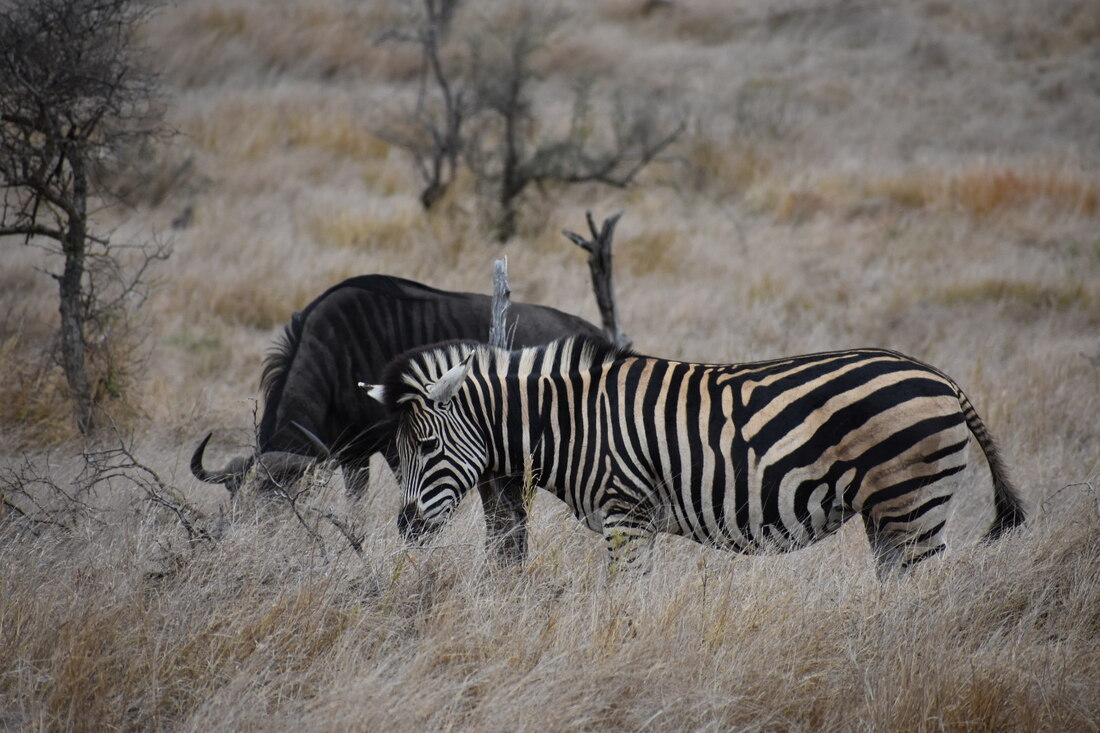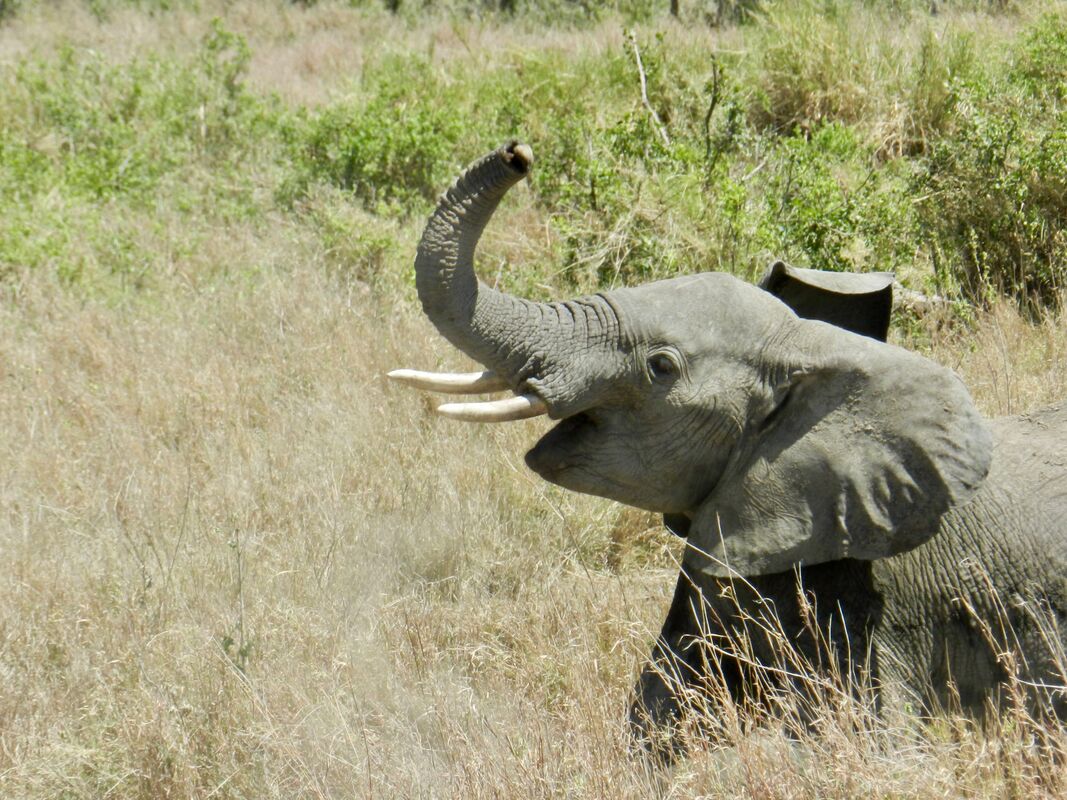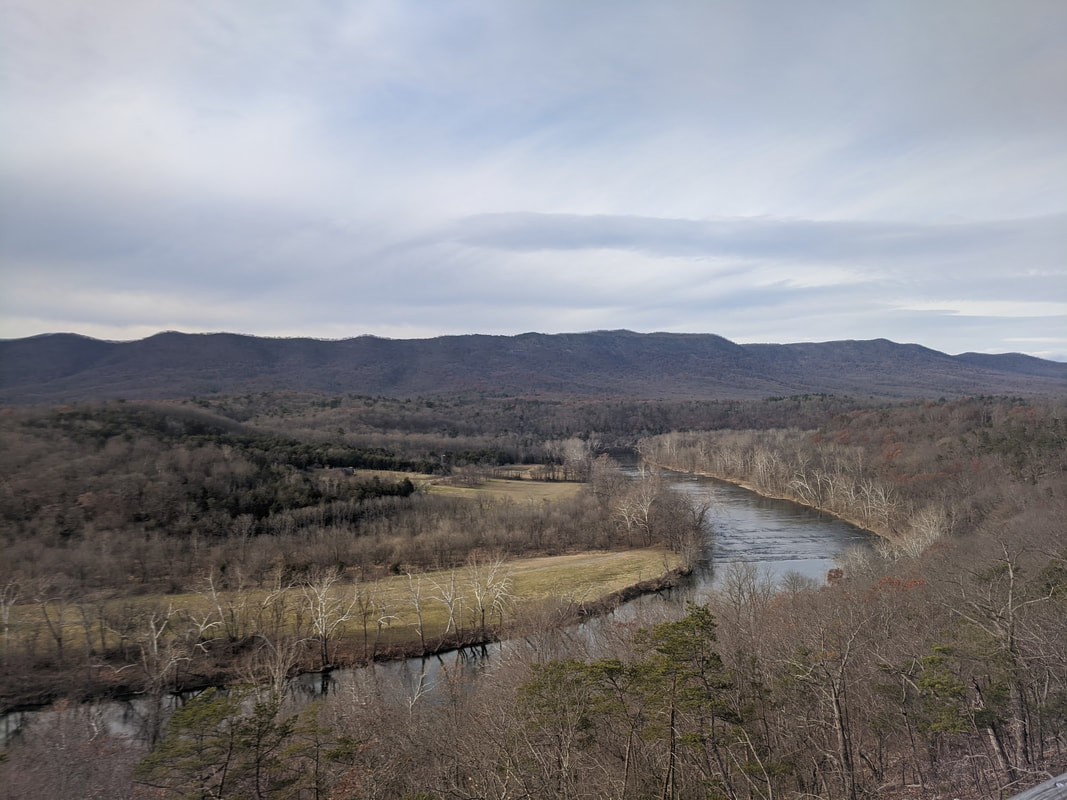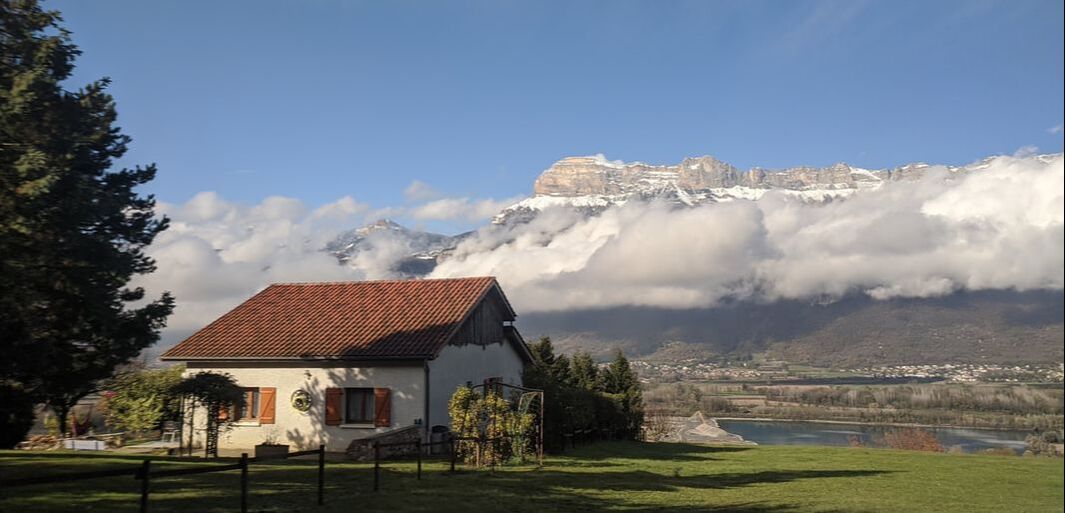|
Phew, am I worn out! It's been quite a week, with THREE different types of science communication speaking events on my schedule. It's been so much fun, but for an introvert like me it's been a lot of face time. I'm glad to just veg for a bit after this.
Thursday: GradX On Thursday last week, I participated in an event through the Graduate School called "GradX". I prepared a five minute TED-style talk about my research for a broad audience, something I haven't done before. I was a bit nervous since I knew I wouldn't really be able to look at notes, but boy was it a fun time! I really enjoyed the opportunity to craft my research, which is very heavy on coding and remote sensing, into a five-minute talk that my family and friends would enjoy. The recording is here (apologies in advance for the poor audio quality and video angle), and a transcript can be found here. Saturday: People & Nature Saturday was the big day: A few colleagues (Anita Simha, Jon Choi, Lane Scher) and I collaborated to put on an all-day symposium for our department called People & Nature, which had originally been slated to take place in March of 2020 (shout-out to Brandie Quarles and Alex Loomis, who did a lot of the planning in 2020!). You can read more at the webpage, but in essence the symposium was about how people and nature interact, with three focuses: Ethnoecology, Place-Based Research, and Environmental Justice. We asked speakers to consider the following questions, and I think they're worthy of sharing here as well:
Tuesday: Skype a Scientist Finally, Tuesday I was delighted to be invited to video call with a kindergarten classroom in Farmville, VA, through a program called Skype a Scientist. It was SO MUCH FUN! I love teaching kids about science, and of course they loved that a lot of my presentation was about poop. I showed lots of pictures of the cool animals and plants that I encountered in South Africa, and asked them questions like "If you were a plant, how would you keep animals from eating your leaves? How would you convince them to eat your seeds?". The poop came in when we discussed the role that frugivores play in spreading seeds far and wide, and we got to play a guessing game with a marula seed I brought from South Africa. Last but not least, we did a bit of show and tell with two snakes that I am pet-sitting, Porkchop and Ghost. The kids went absolutely bananas for them, and really made me wish we could have been in person. Still, what an awesome opportunity, and I'm SO excited to get matched again.
0 Comments
When I stepped off the plane in Dulles, VA back in November, the icy breeze came as a huge shock. This is figurative, of course. My plane had one of those hallway things attached to it, and I didn't get my first taste of the Virginia fall air until my parents picked me up at the Arrivals terminal an hour later. Still, it was a shock---only three days before, I had been enjoying the onset of the hot wet season in Kruger, braving 100-degree days (38-degree, for my Celsius-minded friends) to help Kruger researchers set up soil probes, speaker systems, and trail cameras. Even now, a month out from my return, I still expect to step outside into a blast of heat.
As any ecologist will tell you, the return from the field comes with its own culture shock and dreamlike reflections. I won't try to cover everything in just one post, but instead focus each snippet on one thing that I learned about myself during the course of my month-and-a-half in Kruger. Today's theme: What does it mean to be an ecologist? Or, rather, what does it mean to me? My PhD journey so far has been marked by my struggles to answer this question. As a mathematician and computer programmer, I mostly defined myself by what I could do, and my mental flexibility to find elegant solutions to computational problems. It has taken me a long while to rediscover a meaning behind my title; in fact, it took me over two years to become comfortable with calling myself an "ecologist". Being at Kruger, though, has finally settled this piece of me. I've learned that being an ecologist is not about what you know, but how you approach the world. It means asking questions about the workings of things, pondering the larger cycles and considering both the past and the future of a system with equal weight. It is a special state of mind, an exciting realization that I get to study how this planet works, on every level, for the rest of my life. No matter what I do in my future, I have finally discovered my "ecologist brain"---a brain that can chew on small and large processes, long and short time spans, all at once---hiding in plain sight all along. It's finally happening!
If you'd asked me even a month ago whether I'd have a chance to visit the Kruger National Park this fall, I'd have thought you were pulling my leg. And yet, somehow, I was able to get my paperwork and vaccines together, book flights, and get ready to embark on my first-ever international research trip. I'm incredibly excited to have the chance to go and meet my PhD research goals, especially during a global pandemic. COVID-19 has done a number on my academic plans, my motivation, and my mental health, so this opportunity is a welcome break from long-term pandemic stress and anxiety. I'll be on site for about a month, taking a course on savanna ecology field skills and helping set up a research site on drought effects on savanna vegetation. I'm looking at the course schedule now and just can't believe my eyes---hands-on field work mixed with lectures and other activities? Plans to go out in the field almost every day? A chance to meet all these awesome researchers that I have only been Zoom-ing with so far? It's an absolute dream. Look forward to more pictures and research thoughts to come. In recent weeks I really have been hitting my stride after a major overhaul of my study techniques and a fresh dollop of academic motivation, and I'm truly grateful and excited that I'll get to see this place in action and meet with collaborators for the first time. For a long while I've been doubting whether I really can make it in academia, and this trip is coming at just the right time to help me figure this out. Oh, and of course, a month at a world-class research station on an African savanna will be incredibly awesome. There's that, too. *** This research funding comes in part from Duke University's Data Expeditions fellowship I earned for my work on eBird data with co-author Lane Scher. I am incredibly grateful for the team at Kruger for the opportunity to take this course, and to my Graduate Research Fellowship support from the NSF (see previous blog post). I also note here that all research and travel will be taking place with strict masking and COVID-19 sanitation guidelines, and that I have followed Duke University's vaccination and weekly surveillance testing protocol. Taking an international trip during a pandemic is not something I do lightly. Wow. I am honored to have been named a 2021 NSF Graduate Research Fellow. I honestly still can't believe it. What's more, my incredibly talented, dedicated, and amazing friend and labmate Renata Poulton Kamakura was also selected as a fellow this year. I'm so proud of the both of us, and still reeling from the announcement.
I know that my worth isn't determined by grants or fancy fellowships, but my self-esteem has definitely been boosted by this award. All the congratulations from friends, family, and colleagues; reading such uplifting and encouraging reviewer comments; and the immediate reduction of stress when thinking about the future have all been a huge boon. I tend to have a rather low self-esteem and have always been a bit insecure when it comes to my accomplishments, but I've noticed that lately this award has allowed me to be a bit kinder to myself and a bit less over-humble about my achievements. One reviewer comment in particular stands out to me: "I also want to acknowledge that this math-heavy (modeling-heavy) proposal was very easy to understand, a rarity amongst modelers." This. This is exactly why I am here and what I think I can truly contribute to science and to society in general. To know that my math-heavy proposal was clear and understandable is honestly the highest praise I could have asked for. I hope to continue this communications trend throughout my career. If anyone is interested in chatting with me about their own NSF proposal, please send me an email! I'd be happy to advise. This fall, I was accepted into the first class of Environmental Impact Fellows through the Nicholas Institute for Environmental Policy Solutions. Although I'm not quite sure yet where my future self will use these skills I'm learning through the program, I have been looking forward to this weekend, surrounded by all the intelligent, insightful, and impassioned members of this inaugural class.
. The past few days have been filled with the allegories of Plato and Martin Luther King, the poetry of Elizabeth Bishop, and the powerful convictions of Havel, Rousseau, and Machiavelli, to name a few. Our conversations circled around a few key questions, namely: What does it mean to strive towards good? What are the virtues of a good leader? How does one attain them, and what are mine? How do we balance the need for representation and equality in our society with the pressing pragmatism of timelines, personal liberties, and warring perspectives? And, lastly, how does one bundle all of these thoughts and questions about humanity and virtue, and produce a competent and respected leader? . I don't pretend to answer any but one of the very first, and even that is almost too slippery to grasp. What are my virtues and values? Which do I have now, and which do I work towards in the future? I've just been perusing the list of "Roman Virtues" proffered by the Wikipedia page on virtue, and a few do stand out to me. Firmitas and Industria, or tenacity and industriousness, surely seem to be a good pair of qualities. I don't know that I've quite managed to curate a true sense of stick-to-it-iveness, but I hope to gain that through the long hard grind that is a PhD. One that isn't on the Roman list is empathy. If I am being honest (see the last part of this paragraph), I think that this is the virtue that I have the most of. Sometimes too much, perhaps. But I think it is truly the most important to me, to be able to listen to others, understand their pain, and communicate in a way that is not overbearing, egotistical, or holier-than-thou. The last, Veritas, honesty, is said to be the 'root of all virtue'. I think that one can't be virtuous if one isn't first honest, especially with oneself. I know I have not been the most honest with myself about many things in my life, and I think this is the virtue, above all others, that I will try to work towards during this coming semester. I hope to succeed. . Another question that keeps rearing its head: How can we study the wisdom of those that came before us, when those same people would not believe that most of my fellow classmates should be learning from them at all? When reading excerpts from Machiavelli, Plato, and Darwin, I can't help but think--these old, dead, white men write about and for other old, dead, white men. Can we truly have a discussion about Darwin's thoughts about human nature, when he so obviously sees the majority of us as merely fragile child-bearers or savages? Should we address these issues head on, or perhaps just acknowledge them for products of a bygone era and get to the nugget of truth within? After all, nobody is perfect. Contemporary Internet culture would have us believe that we must throw out the whole apple if a worm is discovered within, but I am not so sure I agree. Yes, we should point out the worm, pull it out into the light, and study it (we are scientists, after all). But I, for one, would probably just cut around the bad parts and eat what remains. It seems that this is what we did during this weekend. We acknowledged the limitations and shortcomings of these authors and the seminar as a whole, but in the end we have learned from them as well. . I'm looking forward to the next session, held in March. Until then, my head will be swimming with thoughts of virtue, human nature, and society. And, of course, my to-read list has now sprouted legs and run off with all my free time! . . . PS and Food for Thought: This episode of Star Trek: Voyager kept popping into my head as we had our discussions on what it means to learn from someone imperfect (or, as in this case, incredibly flawed). I might just rewatch it tonight. This past November, I made a most fantastic voyage across the sea, all the way to the storied French Alps. There, I spent a week with the incredibly intelligent and warm folks at Irstea Grenoble Center; conversations ranged from the pros and cons of joint species distribution models, to the challenges of simulation evaluation, to the perks of a life so close to those dear mountains (skiing being top of the list). I received heaps of useful feedback on my budding project on herbivores in the Kruger National Park, and had the chance to get to know the city and the research group better than I thought I would.
. That week, I truly recognized a facet of my life as a scientist. Science is more than just exploring and investigating the world around us; it is the relationships and conversations we have with others that can spark new insights and lead to fresh research directions. I have made it a new mission of mine to reach out to fellow scientists for coffee conversations more often; to attend symposia and lectures outside my usual realm; and to make connections beyond my (self-described) introvert comfort zone. In doing so, I hope to sow the seeds for further inspiration and breakthrough, both in myself and others. Not every conversation will lead to my next dissertation chapter, it's true; but each will leave me seeing the world from a slightly different angle, and that is what science is all about. . In sum, I'm not-so-quietly counting down the days to my next trip to France; hopefully, soon! |
like it says on the tin. Categories
All
Archives
May 2024
|




 RSS Feed
RSS Feed